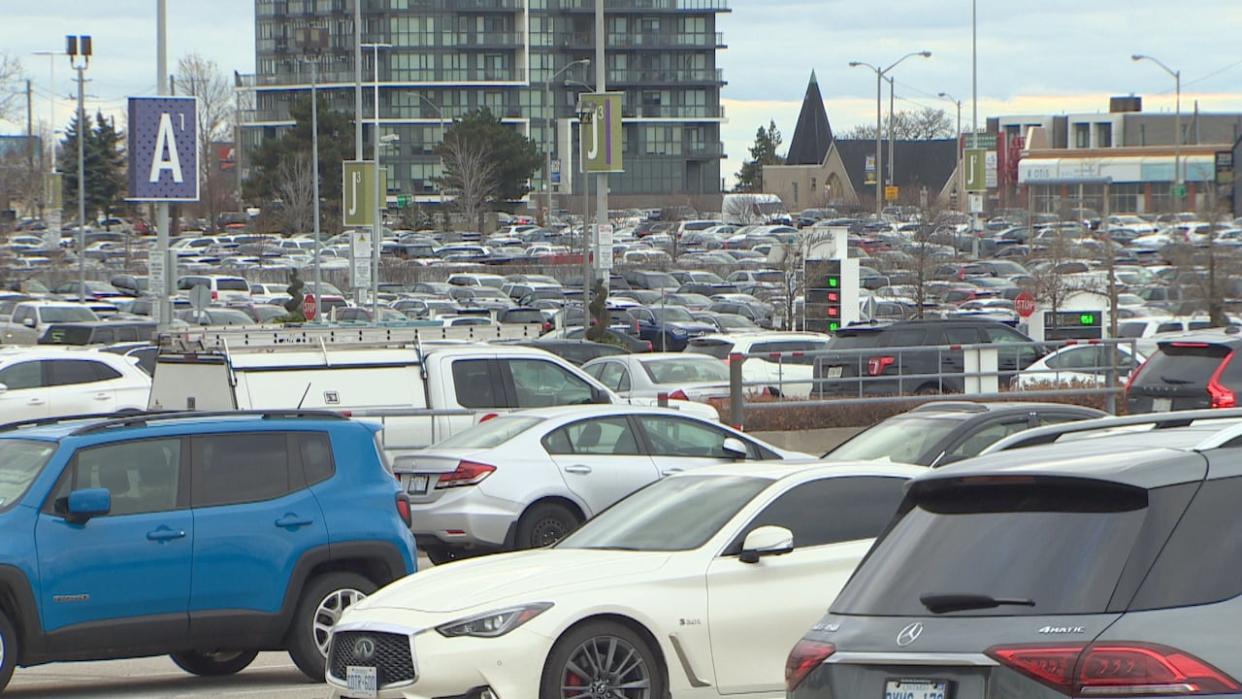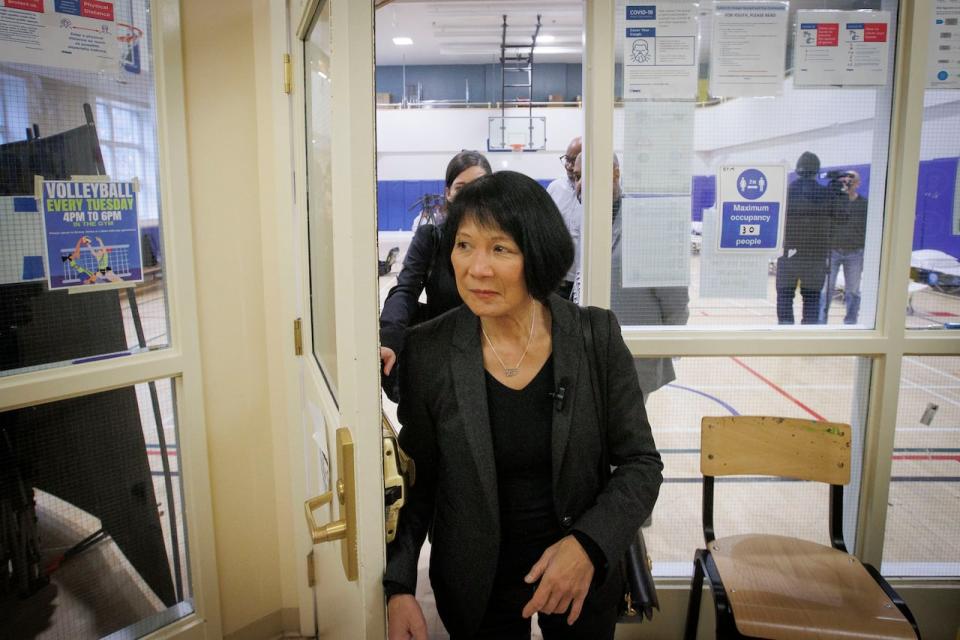Can a parking space levy raise millions for Toronto? City staff say yes

A plan to tax commercial parking across Toronto will come before Mayor Olivia Chow's executive committee Thursday, with staff estimating it could raise as much as $150 million a year for the city.
The proposal creates a two-tiered system which would see downtown and waterfront businesses that own the spaces charged 50 cents per spot, per day. Businesses across the rest of the city would be charged 25 cents per spot, per day.
The levy is part of the city's continuing efforts to grapple with a structural deficit, which last year was as high as $1.8 billion.
The city report recommends imposing the tax by next year, but Chow says there is still time for public feedback on the levy.
"I look forward to hearing what people think about this parking levy," she said.
"And whether they believe it's… too low, too high. I'm sure that people have different opinions."
Last fall, council directed staff to research the new tax and report back as part of the city's long-term financial plan. The report gives the most detailed look to date of what the levy could raise and how it would impact businesses.
The proposed levy does include some carve-outs, including an exemption for the first 300 square metres of all properties. That is roughly equivalent to 10 parking spots.
In order to impose the tax, city staff will need to put together an accurate inventory of all of the commercial parking spaces in the city. They say that could take between 12 and 18 months. Staff estimate Toronto currently has one million commercial parking spaces.
"Overall, the introduction of a parking levy is expected to have a positive impact on City priorities and objectives, including reducing congestion and positively contributing to climate action by encouraging Torontonians to use transit or other means to travel," the staff report said.
Transit advocacy group TTCRiders has been pushing for the commercial parking levy for years. They're happy with the staff proposal and think anything it generates should fund transit, executive director Shelagh Pizey-Allen said.
"This is definitely a good first step because the TTC is in desperate need of sustainable revenue sources," she said. "And just to put that $150 million into perspective. The city of Toronto could be building two Scarborough busway-type projects a year with that kind of funding."

Chow tours Covenant House Toronto on Jan. 15, 2024. Chow's executive committee will consider a staff plan to create a commercial parking levy that could raise up to $150 million a year. (Evan Mitsui/CBC)
Revenues lower than previous projections
The staff estimates for the new levy come in on the low end of projections in several previous reports to council.
In 2016, a report from consultants KPMG estimated the levy could raise between $131 to $535 million a year. In 2021, a city staff report said the revenues could range between $191 to $575 million a year. Those estimates were based on charging the owners of the lots $1.50 per day, per parking spot.
Coun. Brad Bradford (Beaches-East York) doesn't support the commercial parking levy and calls it an additional tax on small business. He criticized Mayor Chow for increasing costs on those businesses, and people who live in the city, with the new fee.
"It seems like this administration is making life more expensive in the city, not more affordable," he said. "Costs are up and this isn't going to incentivize people to patronize those businesses, it's going to push people to stay home."
Giles Gherson, CEO of the Toronto Region Board of Trade, says now is the wrong time to impose the tax. Many businesses are still struggling to recover from the pandemic, he said, and this is just one more hit to their bottom line.
"We're a high cost city and so adding new costs… now seems to us to be counterproductive," he said.
Gherson said the board of trade understands the city is trying to address a structural deficit and that will take years. But it's concerned about the "piecemeal" approach council is taking to implementing new revenue tools like the commercial parking levy.
"Our advice to council would be to wait, pause," he said. "I think what the city needs to do is have a longer term structural budget plan that brings the budget into balance. There'll be some revenue increases, there's going to have to be some cost controls as well as."
If Chow's executive committee endorses the levy, it must still get final approval from city council next month.


